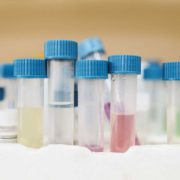Lab Skills: Training
TRAINING IS KEY
When we onboard or develop a new procedure at Clean Water Lab, we take training very seriously. There are many reasons why we value training and here are just a few:
- Quality: we ensure the process is done properly every time.
- Efficiency: we ensure the process is done in the most efficient manner every time.
- Trouble shooting: we ensure our staff know how to trouble-shoot when issues arise.
- Education: we ensure our staff are educated in any science behind our process.
At the end of the training session, each Clean Water Lab team member should walk away feeling knowledgeable and prepared to perform the procedure. But how do we train our staff to perform our vital testing procedures?
TRAINING PROCESS
When we onboard or develop a new procedure, we typically follow certain guidelines. These guidelines are outlined in our Quality Assurance Plan and are listed below.
Trainee reads the SOP
The trainee spends time reading the Standard Operating Procedure. The focus of this session is to acquaint the trainee with the basics and any science behind the method.
Trainee observes the Trainer performing the tasks
The trainee sees the procedure in action. This is the time for the trainee to ask any questions they may have. These sessions are crucial for outlining safety precautions as well.
Trainer assists/supervises Trainee completing the tasks
The trainer gives the trainee one-on-one guidance and tips for performing the procedure. The trainee gets the opportunity to gain hands on experience. The trainer actively refers the trainee to the SOP for any items that need to be clarified.
Trainer/Trainee sign off on the training checklist
After extensive trainer/trainee one-on-one, they both sign off on a training checklist. This training checklist outlines the crucial procedural steps. The trainer and trainee agree that they have either trained or been trained in those items, respectively.
Trainee relies on the help of the Trainer until they feel confident
During this on-the-job learning time, the trainee is minimally supervised by the trainer. This phase is intended to phase out the trainer so the trainee can become independent. The trainer is available to help whenever the trainee is in need and will periodically audit the trainee’s performance.
Trainee completes the SOP quiz, with 80% or higher
Once the trainer/trainee feel confident in the trainee’s performance, an SOP quiz is completed by the trainee. The trainee is not allowed to refer to the SOP or to use any notes. The trainee must achieve an 80% or higher on the quiz. If the trainee fails to score appropriately, they will be deferred to remedial training.
Trainee is audited performing the process independently
Once the SOP quiz is completed with an 80% or higher, the trainee will be audited. The auditor will not assist the trainee or give guidance. It is the trainee’s full responsibility to perform the tasks outlined in the SOP properly. The auditor uses a competency checklist to track the trainee’s performance. Any crucial mistakes on the part of the trainee will result in remedial training, and a failed competency.
Trainee completes initial competency, completes tasks without supervision
Once the competency audit is successfully completed, the trainee is now considered competent in the procedure. They may complete the procedure without supervision.
Trainee is audited again after 6 months
As if one audit wasn’t enough! In 6-months, the trainee is audited again to ensure a quality performance.
Trainee is deemed competent, audits move to an annual basis
After it’s all said and done, the trainee gets to be audited annually instead of every 6 months. They will perform the tasks outlined in the SOP without supervision and will move from trainee to trained.
Enjoying what you’ve read so far? Check out Liz’s last article:
ABOUT LIZ
Liz has been a North Carolina resident for over 20 years. Her leadership and management skills have developed across the food, retail, and testing laboratory industries. Liz has been the Laboratory Director at Clean Water Lab for over 3 years. Currently, she holds two degrees in biology and is pursuing a MBA from Western Carolina University.

